
Two posters presented at the Society for Pediatric Dermatology's Annual Meeting explore the psychological toll and potential nutritional approaches for managing vitiligo in children and adolescents.

Two posters presented at the Society for Pediatric Dermatology's Annual Meeting explore the psychological toll and potential nutritional approaches for managing vitiligo in children and adolescents.
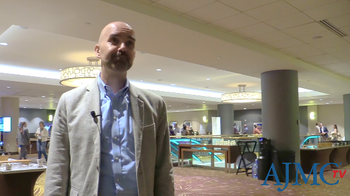
Cory Simpson, MD, PhD, assistant professor of dermatology at the University of Washington, spoke to the need for more treatment options in genetic skin conditions and the possibility of drug repurposing.

With obesity rates rising sharply, the American Academy of Pediatrics calls for multimodal strategies to address the crisis in youth.
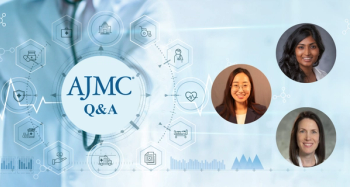
Pediatric hidradenitis suppurativa faces diagnostic delays and stigma, while adalimumab shows superior drug survival compared with infliximab in children.
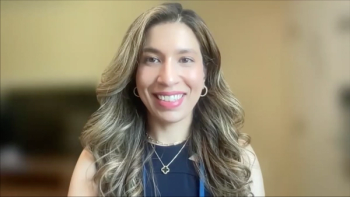
A review highlights the need for better research on pediatric segmental vitiligo treatments, as current options show mixed results, and at SPD 2025, Hira Ghani, DO, emphasized the importance of recognizing often-overlooked skin conditions in children.

A poster at the Society for Pediatric Dermatology Annual Meeting presented an integrated safety analysis showing rare or no serious adverse events linked to topical Janus kinase inhibitor use in children with atopic dermatitis (AD).
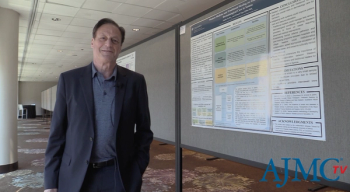
The efficacy of ruxolitinib cream in pediatric patients shows that nonsteroidal management of atopic dermatitis is feasible, said Lawrence Eichenfield, MD, chief of pediatric and adolescent dermatology at Rady Children's Hospital.

Culturally informed, patient-centered strategies are needed to address acne and hyperpigmentation in patients with skin of color.
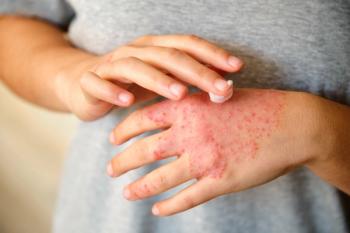
New data highlight efficacy, safety, and time off treatment with as-needed ruxolitinib cream in pediatric atopic dermatitis.

Rebecca Chacko, MD, discussed exciting advancements in breast cancer care and the future role of emerging therapeutic strategies for early recurrence detection, as part of her panelist role at the Detroit Institute for Value-Based Medicine.

The Society for Pediatric Dermatology’s 50th Annual Meeting will highlight advances in pediatric skin, hair, and nail care, with expert-led sessions on cutting-edge research and therapies.
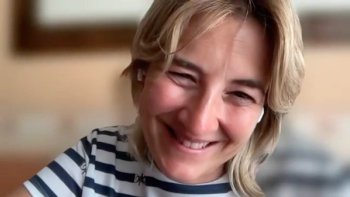
María Díez Campelo, MD, PhD, concludes by highlighting imetelstat’s real-world quality of life benefits for patients with lower-risk myelodysplastic syndromes (MDS) and the need for improved patient-reported outcome tools and caregiver-focused research.

Imetelstat (Rytelo; Geron) significantly improved and sustained health-related quality of life in patients with lower-risk myelodysplastic syndromes (MDS), with benefits linked directly to the drug rather than patient characteristics.

The phase 3 IMerge trial (NCT02598661) evaluated how treatment with imetelstat impacts health-related quality of life in patients with lower-risk myelodysplastic syndromes (MDS), according to María Díez Campelo, MD, PhD.
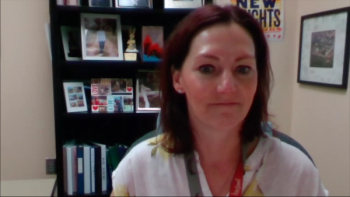
Carrie Kitko, MD, explains that axatilimab maintains strong response rates in patients with chronic graft-versus-host disease (GVHD) regardless of previous treatment lines and emphasizes the need to explore combination therapies.

The post hoc analysis of the AGAVE-201 trial found that axatilimab demonstrated consistent response rates in patients with chronic graft-vs-host disease (GVHD), regardless of the number or type of prior therapies.
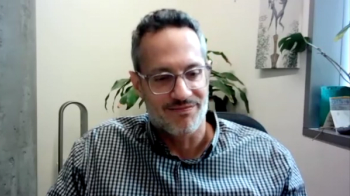
AZD0486 demonstrated encouraging safety and dose-dependent efficacy in heavily pretreated adolescent and adult patients with relapsed/refractory B-cell acute lymphoblastic leukemia (ALL), according to early findings from the phase 1/2 SYRUS trial and Ibrahim Aldoss, MD, of City of Hope.
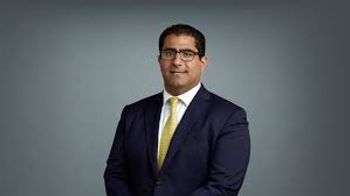
Zongertinib shows promising results in HER2-mutant NSCLC, offering high response rates and improved quality of life with minimal toxicity.
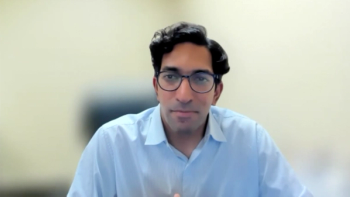
A post hoc analysis of the phase 3b JUMP trial supports the real-world use of ruxolitinib with anemia supportive care to maintain dosing and clinical outcomes in patients with myelofibrosis, offering a practical strategy that does not compromise efficacy.

Ibrahim Aldoss, MD, discusses the potential of AZD0486 for treating relapsed or refractory B-cell acute lymphoblastic leukemia (ALL) and outlines the SYRUS study objectives.

A post-hoc analysis of the phase 3b JUMP trial found that ruxolitinib plus anemia supportive care maintained efficacy and reduced transfusion needs in patients with myelofibrosis.
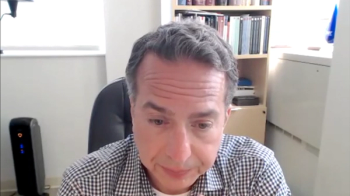
INCA33989 continues to show strong safety and early signs of disease modification in essential thrombocythemia, according to John Mascarenhas, MD, with next steps focused on optimizing dosing and delivery scheduling.

Mirvetuximab soravtansine continues to show efficacy and safety in the final analysis of the phase 2 PICCOLO study.

A post-hoc analysis of the phase 3b JUMP trial assessed outcomes in patients with myelofibrosis and baseline anemia who were treated with ruxolitinib alongside anemia-supportive therapies, according to Pankit Vachhani, MD.

At 12 weeks, patients treated with ENV-101 showed statistically significant increases in lung volume compared with those receiving placebo.

John Mascarenhas, MD, discusses phase 1 data showing that INCA33989 is a well-tolerated therapy for calreticulin–mutant essential thrombocythemia, with early signs of efficacy and potential disease modification.

John Mascarenhas, MD, discusses the rationale, mechanism, and design of the phase 1 INCA33989-101 and -102 trials investigating a CAL-R–targeted antibody for patients with essential thrombocythemia.
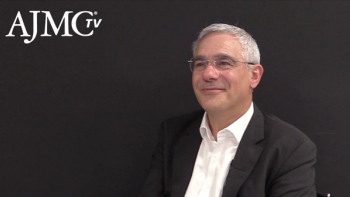
On-body delivery systems for subcutaneous isatuximab could enable patient self-administration, according to Xavier Leleu, MD, PhD, improving convenience and transforming treatment for relapsed/refractory multiple myeloma.

Compared with tezepelumab, solrikitug demonstrated unique epitope binding and superior potency across several assays.

The phase 3 IRAKLIA trial found that subcutaneous isatuximab delivered via an on-body system was as effective and safe as intravenous (IV) administration in relapsed/refractory multiple myeloma, according to Xavier Leleu, MD, PhD.

259 Prospect Plains Rd, Bldg H
Cranbury, NJ 08512
© 2025 MJH Life Sciences®
All rights reserved.
